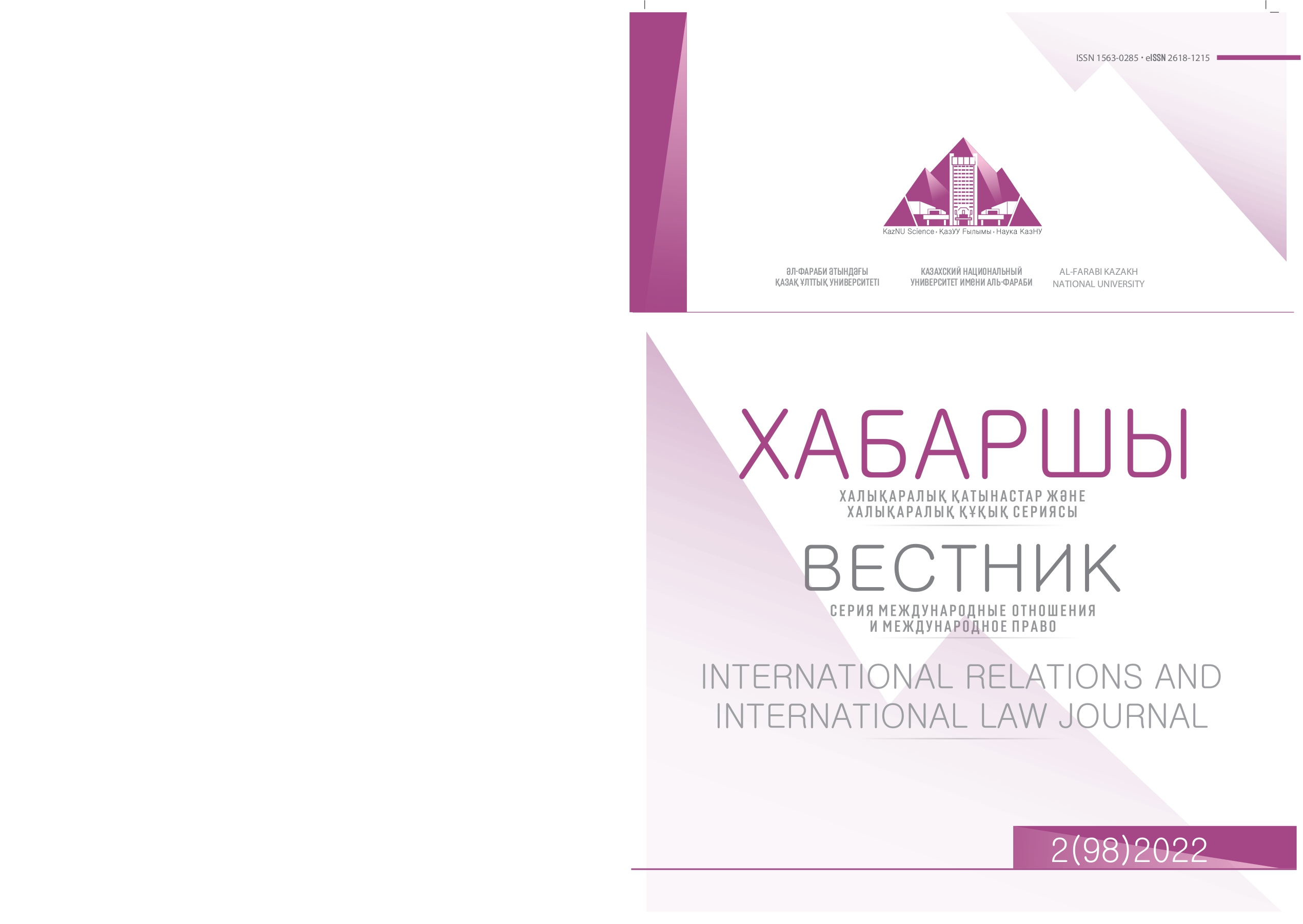Trade war and COVID-19 pandemic as a deglobalization factor
DOI:
https://doi.org/10.26577/IRILJ.2022.v97.i1.04Abstract
The article analyzes the impact of the COVID-19 pandemic and trade wars on global economic integration. Having analyzed the economic indicators of recent years, the article attempts to trace the trend towards deglobalization caused by global economic crises and economic contradictions, such as the trade war between the United States and China. Ensuring national security and concern for public health gives new grounds for protectionism, to focus on the development of domestic resources.
This article examines several stages of world economic integration, and highlights a separate historical stage - a slowdown in economic growth, the so-called period of slowbalization. An attempt is made to define deglobalization. Deglobalization is not a new concept, but rather a megatrend. Signs of deglobalization, measured by a slowdown in trade and investment, and a shrinking global value chain, began to appear as early as 2008. And this trend has accelerated due to the desire of the United States to contain China in the context of strategic competition between them. The article highlights another important factor contributing to deglobalization - COVID-19.
In general, the article concludes that it is too early to assert about the depth and sustainability of this megatrend - deglobalization. This will not mean the end of globalization, a process that has reached a historically high level. But globalization can be at least partially reversed.
Key words: deglobalization, slowbalization, trade contradictions, trade war, USA, China, COVID-19 pandemic.














